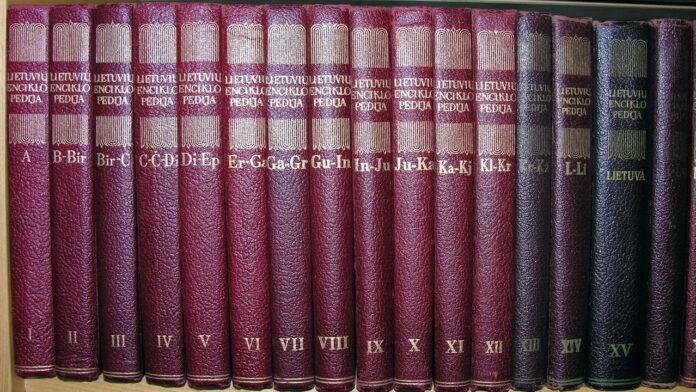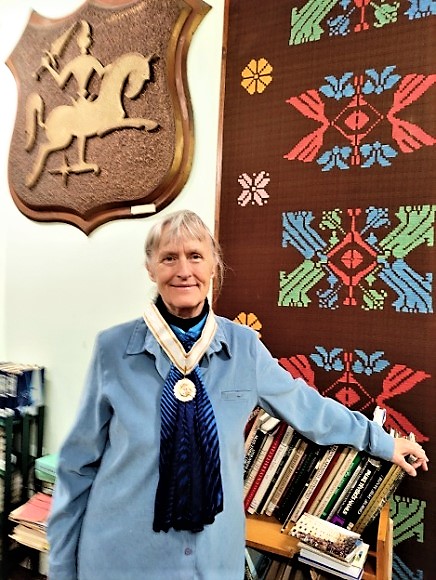
The idea of a Lithuanian encyclopedia, initiated in Lithuania before World War II, was revived in the United States by Lithuanian emigrants. Juozas Kapočius organized the editorial team and Vaclovas Biržiška again became the chief editor. Between 1953 and 1966, they published the 35-volume Lietuvių enciklopedija (often nicknamed the Boston Encyclopedia because it was published in Boston, Massachusetts) in the Lithuanian language. Two volumes of supplements and addenda were published in 1969 and in 1985. It is often believed that they were continuing the unfinished work of their first encyclopedia begun in their homeland. The undertaking was especially difficult because most of their materials and sources were left behind in Lithuania and unavailable due to Soviet repression.
The archive of the Boston Lithuanian Encyclopedia in the United States has now been added to the UNESCO Memory of the World Programme National Register. The encyclopedia of almost 20,000 pages is a testimony of how Lithuanians fleeing the war and Soviet occupation sought to preserve and transmit the culture of independent Lithuania to future generations.
The Lithuanian-American Cultural Archive (ALKA), which moved to Putnam, Connecticut, after World War II, is halfway between New York and Boston. The Gediminas Pillars adorn the wall of a low-rise building and “God bless Lithuania” is engraved in English on a wooden cross. Inside the building is the legacy of a century of Lithuanian diaspora in the United States.
 The director of the Lithuanian Cultural Archives (ALKA) in the USA, is Dr. Mirga Girniuvienė of Chicago, who explained that the archive was founded by Monsignor Pranciškus Mykolas Juras. He came to the USA before WW I, fleeing service in the Russian Imperial army. Ordained as a priest in the US, after the war he began to collect newspapers, books and art by the Lithuanian diaspora community that had existed on the east coast of the USA since the 19th century.
The director of the Lithuanian Cultural Archives (ALKA) in the USA, is Dr. Mirga Girniuvienė of Chicago, who explained that the archive was founded by Monsignor Pranciškus Mykolas Juras. He came to the USA before WW I, fleeing service in the Russian Imperial army. Ordained as a priest in the US, after the war he began to collect newspapers, books and art by the Lithuanian diaspora community that had existed on the east coast of the USA since the 19th century.
The most unique item of the Archive’s collection is the Boston Lithuanian Encyclopedia.
“Written and published in the diaspora. No other community in the diaspora has published a universal encyclopedia,” explains Girniuvienė.
Boston was a centre for Lithuanian intellectuals fleeing World War II. Writing the encyclopaedia helped them maintain a link with their former lives in the independent Republic of Lithuania. They also felt they had a mission: to preserve Lithuanian culture and to counterbalance the Soviet version of what was happening in Lithuania.
The work took decades, and dozens of the most famous Lithuanian intellectuals and artists contributed. Over the years, these authors, scattered all over America, sent their material to the encyclopedia’s editors, who published this seminal work on a volunteer basis.



























